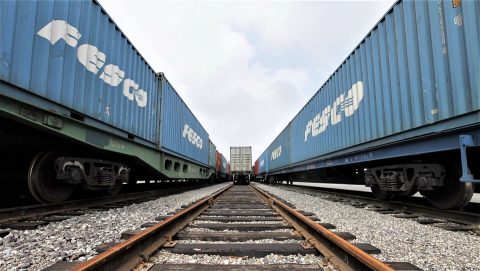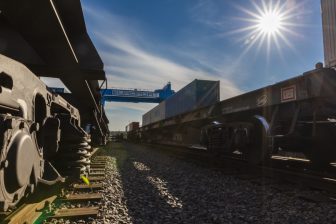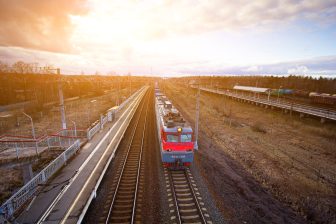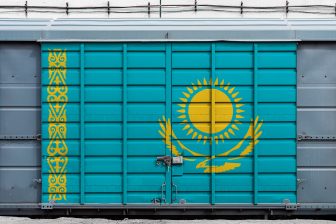
FESCO tests new train from China to Hamburg via Kaliningrad
The Russian enclave of Kaliningrad is gaining significance on the New Silk Road as more and more logistics companies turn to the region’s railway border crossings with Poland. The latest service launched is Silkway Amber, connecting Zhengzhou in China with the German port of Hamburg.
Silkway Amber is an initiative of the Russian transport company FESCO. It owes its name to the huge deposits of amber in Henan province, which saw 43 containers lifted on a test train to the German hub on 24 October. The train arrived on 7 November after a 14-day journey.
The route via the Kaliningrad region has been used for several years by operator UTLC ERA, for transit traffic between Europe and China. It has now also gained the attention of FESCO. The route of the new train also goes via Mongolia, mainland Russia, Belarus and Lithuania before entering the Russian enclave. For the transhipment from Russian to European gauge, the intermodal facilities at Dzerzhynskaya-Novaya railway station were used.
Additional lines
Besides the new container service via Kaliningrad, FESCO is operating two other links between Zhengzhou and Hamburg. Both routes run by the more familiar route via Belarus and Poland. The only difference is their transit via the territory of Russia. The first service runs from China to Russia directly via the Russian Far East and takes eighteen days. The second route includes Mongolia as a transit country. Therefore, the travel time is only fourteen days.
The railway border crossings of the Kaliningrad Region also attracts European logistics companies. Among the most recent developments is the container rail link from Xi’an in China to Hamburg and Neuss in Germany. It was launched by DHL Global Forwarding and Xi’an International Inland Port Investment & Development Group. The partners claim it as the fastest service between Xi’an and Hamburg. Only ten to twelve days are required to transport containers by rail between the termini.
Multimodal options
In November 2018 UTLC inaugurated the multimodal connection between the Chinese city of Chengdu and the port of Rotterdam. This includes the facilities of Kaliningrad seaport. First, the containers are delivered to Kaliningrad by rail, where they are put on a ship for the delivery to Rotterdam by sea.
This connection was organised by UTLC in a partnership with Belintertrans, a subsidiary of Belarusian Railway, and Kaliningrad Commercial Port. UTLC also intends to start a multimodal service between China and the Italian city of Verona running via Kaliningrad and the German port of Rostock.
European Silk Road Summit
Do you want to know more about the New Silk Road and its latest developments? On 26 and 27 November the European Silk Road Summit takes place in Venlo, the Netherlands. At this two-day international event more than 35 speakers and around 250 delegates will share their experiences, expertise and latest news. Registration for the event is still open. The programme and speakers can be found on the website.
Also read:




